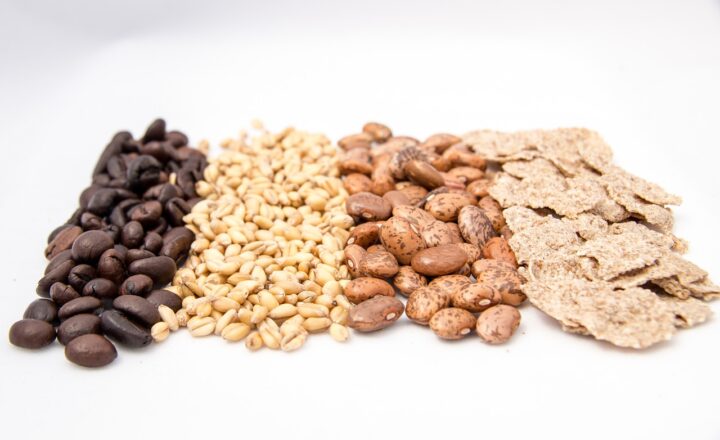Muscle Gain for Hard Gainers: How to Build Muscle Even with a Fast Metabolism
November 14, 2024

Gaining muscle can be a challenge for many, but for those classified as “hard gainers,” the struggle can feel even more daunting. Hard gainers often possess a naturally fast metabolism, making it difficult to gain weight — let alone muscle — despite dedicated training and nutrition efforts. However, building muscle is not impossible; it requires a strategic approach to both diet and exercise. In this article, we will explore effective methods tailored for hard gainers to build muscle efficiently without feeling overwhelmed.
1. Understanding the Hard Gainer:
Before diving into the strategies for muscle gain, it’s crucial to identify what a hard gainer is. Hard gainers are often characterized by:
- Fast metabolism that burns calories quickly, making caloric surplus challenging.
- Genetically predisposed to a leaner physique and lower levels of body fat.
- Difficulty in gaining both muscle and fat, often leading to frustration in traditional bodybuilding methods.
Understanding these traits helps tailor a muscle-building program that accommodates the unique challenges faced by hard gainers. The following sections will discuss nutrition and training techniques to help hard gainers successfully add muscle mass.
2. Nutrition: Fueling Muscle Growth
Diet plays a pivotal role in muscle gain, especially for hard gainers who need to consume more calories than they burn to achieve a caloric surplus. Here are key nutritional strategies:
Caloric Surplus:
To build muscle, it’s essential to eat more calories than your body needs. Calculate your Total Daily Energy Expenditure (TDEE) and aim for a surplus of 300-500 calories.
If your TDEE is 2,500 calories, you should aim for 2,800 to 3,000 calories daily for muscle gain.
Macro Balance:
In a muscle-gaining diet, your macronutrient ratio is vital. Focus on:
- Proteins: Aim for at least 1.2 to 2.2 grams of protein per kilogram of body weight. Good sources include lean meats, dairy, lentils, and legumes.
- Carbohydrates: Carbs are essential for energy. Incorporate complex carbs like whole grains, fruits, and starchy vegetables to fuel workouts and recovery.
- Fats: Don’t shy away from healthy fats. Focus on sources like avocados, nuts, seeds, and olive oil to enhance caloric intake.
Frequent, Nutrient-Dense Meals:
Instead of three large meals, opt for five to six smaller meals throughout the day to help reach your caloric goals. Include snacks like protein bars or smoothies, which provide easily digestible energy.
3. Training: Optimizing Workouts for Muscle Gain
An effective training regimen is crucial to stimulate muscle growth. Hard gainers should focus on:
Weightlifting Basics:
Strength training is essential for muscle hypertrophy. Here are key elements to include:
- Compound Exercises: Focus on multi-joint movements like squats, deadlifts, bench presses, and rows that engage multiple muscle groups, promoting overall growth.
- Progressive Overload: Gradually increase weights or resistance to challenge your muscles continuously and stimulate growth.
- Moderate Reps & Sets: Aim for 3-4 sets of 6-12 reps per exercise, ensuring each set pushes you to near failure to maximize muscle gains.
Rest and Recovery:
Muscle growth occurs during rest periods, not just in the gym. Ensure:
- Adequate Recovery Time: Allow at least 48 hours before working the same muscle group again.
- Sleep Quality: Aim for 7-9 hours of quality sleep, as recovery hormones like growth hormone are released during deep sleep.
4. The Role of Supplements in Muscle Gain
While a well-balanced diet should meet most nutritional needs, some supplements can support muscle gain for hard gainers:
- Protein Powders: Whey or plant-based protein powders can help meet daily protein intake goals. Consider a protein shake post-workout for optimal recovery.
- Creatine Monohydrate: Creatine enhances strength and muscle mass, especially for high-intensity workout performance.
- Branched-Chain Amino Acids (BCAAs): Supplementing with BCAAs may reduce muscle soreness and improve recovery times, encouraging consistent training efforts.
Be sure to consult with a healthcare provider before starting any supplementation.
5. Consistency is Key
Building muscle takes time, patience, and a consistent approach. Hard gainers often become discouraged when results don’t come quickly. Remember:
- Create short-term and long-term goals to keep motivation high.
- Track your progress using a workout app or journal, noting weights lifted and body measurements to visualize growth.
- Stay committed to your nutrition and training plans even during plateaus; changes will occur with perseverance.
Conclusion
For hard gainers, the journey to building muscle can be challenging, but with the right nutrition, training, and mindset, it is entirely attainable. Recognize your unique metabolic challenges and implement strategies that suit your needs. By prioritizing a caloric surplus, focusing on strength training, and embracing consistency in your approach, you can successfully transform your physique and achieve your muscle gain goals. Remember that every individual’s body responds differently, so it’s essential to adapt your strategy based on what works best for you. Stay dedicated, and the results will follow!






